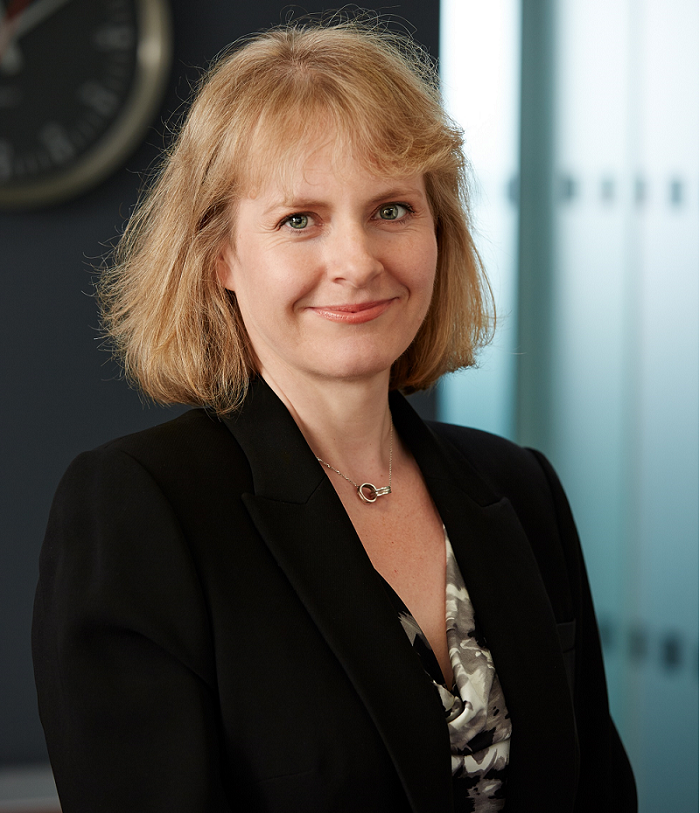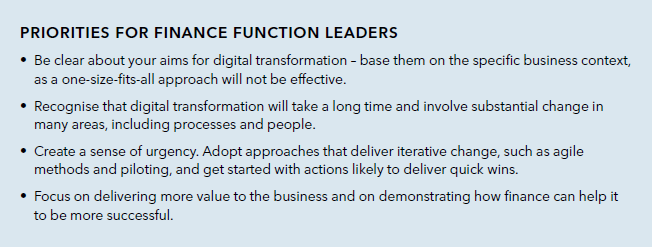ICAEW: Technology is now at the centre of everything
By Kiran Kaur Sidhu October 29, 2019
- Accountants need a good handle on the ‘golden thread’ that runs through it all
- Technology enables shift from repeatable processes to giving more financial insight

The answer came in a snap. When Kirstin Gillon, the Institute of Chartered Accountants in England and Wales’ (ICAEW) Global Tech Research Lead, was asked about the biggest shift for the accounting profession over the last half-decade, she said: “Technology is now at the centre of everything that we do at ICAEW. It has become so important to how accountants are doing their jobs.”
The digitalisation journey of financial institutions and organisations are at the forefront of current conversation, and although the shifting role of accountants is notable, it is an area that is not heard of much. Within ICAEW, Gillion describes technology as a “golden thread” that runs across all that it does.
Shifting role of accounting to business intelligence
Providing specific examples of how technology has enabled this shift, Gillon (pic, right) talked about the audit function where a significant change has been moving from sampling to analysing 100% of transactions. “Instead of looking at small random samples of transactions, they will look at every transaction in a ledger over the past year - which could be billions of transactions in a large international company.”
transactions, they will look at every transaction in a ledger over the past year - which could be billions of transactions in a large international company.”
Helping to form ICAEW’s position on digitalisation and why accountants must adapt, is the recent ICAEW report, ‘Digital transformation in finance functions: ASEAN and UK perspectives’ which looks at the real-world experience of new technologies. It highlights the need to move to business partnering for professional accountant to “spending less time doing accounting and finance processes and more time working closely with business functions to provide financial insight.”
Business partnering is not a new concept, says Gillon, with the key message of the report being this is the future the profession will gravitate towards. “The idea is for finance people to work closely with business functions to help them with decision-making and provide insight from a financial perspective.”
Although the path of transition is paved with challenges, the research emphasised the urgency of finance to make the shift given the rapid pace of technology. “There is a sense that if we don't move up the value chain and start delivering this, actually the role of finance could, well, diminish and lose its influence. As automation takes over the processing, we have got to make sure accountants are equipped to do the higher value tasks.”
The switch from accountants carrying out processes to being more analytical is essentially what current-day finance jobs demand. A key concern for employees is how to go about the reskilling of staff. While it is valuable for finance professionals to understand the uses of technology like blockchain, artificial intelligence and robotics, it is data and analytics in particular that is beneficial.
“The practical skill that most people need is around data and, to a large extent, that is the ability to use tools to make sense of the data, rather than coding. Some finance functions train their staff in coding, that is not unheard of, but it's not the majority,” shared Gillon.
As for artificial intelligence and machine learning within accountancy, Gillon categorises that it is still in the early stages. "There are machine-reading type technologies in terms of scanning invoices, for example. We haven't seen many examples of it in the companies we have spoken to at this stage."
Robotics, however, which Gillon describes "as a way of replicating manual work", is far more popular. "That is a much simpler form of process automation [than artificial intelligence] and we see that quite a lot. For instance, robotics is used if there are regular tasks of compiling data from various different sources into a spreadsheet," she said, explaining that the most common form of robotics is the Microsoft Excel macro function.

Digital transformation in accountancy: Is it happening fast enough?
But whether or not the transformation is happening fast enough, Gillon believes, there are mixed experiences across organisations. "I think a lot of the problems that are slowing down digital transformation is that a lot of finance functions have a lot of manual and non-standard processes, and until we fix that it is actually quite hard to automate."
She however notes that there is a lot of effort going into standardising and simplifying processes in order to move into automation. “This takes quite a lot of time," she adds.
For finance functions that are looking to move into business partnering, it requires significant transformation beyond just introducing technology. The change of practice calls for management to set the tone "all the way down the organisation through leadership and consistent messaging."
Gillon emphasised that it is not just a top-down approach. "Lots of companies have change agents who are not necessarily digital experts, but are open to listening to people's concerns about their jobs."
Amidst concerns of job displacement within the sector, accountant and ICAEW student numbers are healthy and growing. "I think in the longer term, we will see that shift and there will be fewer jobs doing processing and reconciliations. There is still huge demand in businesses to get insightful data, so we see that there are plenty of roles that the mindset and skills of accountants will be good to do, but they are different roles."
Candidly, Gillion said: "In the end of the day, if machines and processors can process data better and cheaper than we can, surely we should embrace that. We need to look for more valuable and interesting things for our people to do."
In terms of preparing students of today for the future of jobs, the ICAEW itself has embedded technology in all of its modules since 2017, instead of having a separate technology or IT-related subject. "Whether audit, tax, management reporting, there is a whole range of technology topics such as data analytics, cybersecurity, artificial intelligence, blockchain that is appropriate to the content."
Although Gillon was unable to say which companies in particular were leading the way for technological use in the accounting profession, throughout the world, multinational companies and the "Big Four" accounting firms comprising EY, PWC, Deloitte, KPMG, are at the forefront. "In the United Kingdom, one of the concerns is making sure these capabilities extend beyond the Big Four that have the resources."
Related stories:


